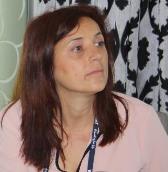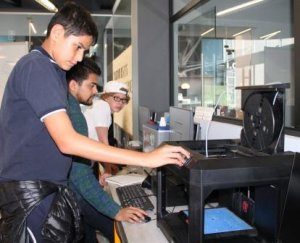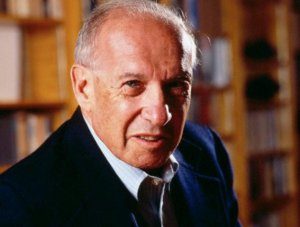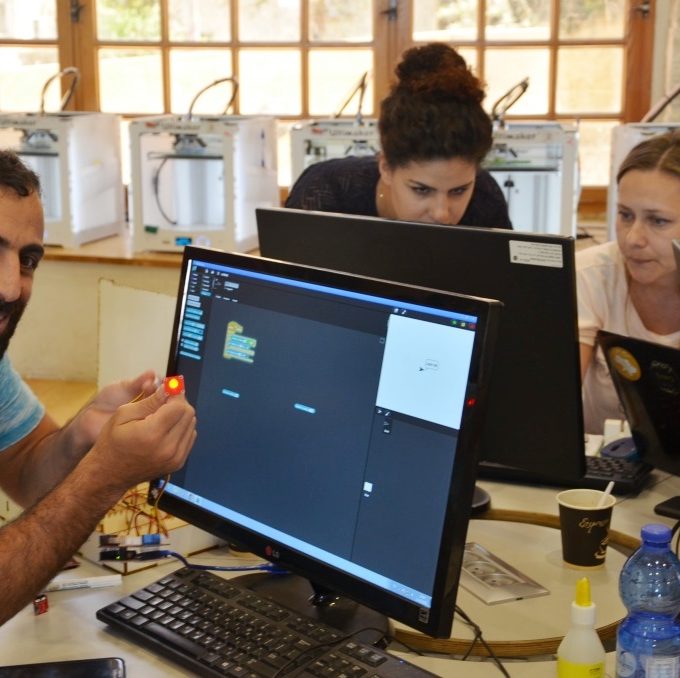Whether you’re starting up an enterprise or simply advancing your career, entrepreneurial skills are an increasingly valuable asset. World ORT Kadima Mada’s Chief of Informal Education, Ayelet Abramovitch, describes a global pilot programme her team has created which aims to cultivate such skills in our students.

Kadima Mada’s Chief of Informal Education, Ayelet Abramovitch.
This new school year, teams from throughout the World ORT schools network will take part in our 30-week Young Entrepreneurship Program applying digital technology to the rapidly developing field of smart homes. They’ll be guided by mentors from the fields of business and development; and a global learning community of World ORT teachers will accompany them from idea to product.
The rationale behind the program, which combines entrepreneurial learning with digital technology, is the need to adapt to an environment made increasingly dynamic by the onset and evolution of technology.
As I told these teachers at our initial training seminar in Israel:
Our mission is to nurture children to become active participants in, and contributors to, their communities and their countries. Born into a world of technology and innovation, these children know how to swim these waters. In this program, we have two main goals: to instil skills of innovative thinking and practice, and to stimulate these children to ask why this particular idea deserves to be developed.”
Developed in partnership with the award-winning entrepreneurship education NGO Unistream, and the Madatech Museum of Science, Technology & Space’s Fab Lab, the Young Entrepreneurship Program is divided into four parts:
- a theoretical introduction to entrepreneurship
- tools and skills for digital production
- preparing for the start-up project ending in a go/no-go panel
- getting into task groups and working with a mentor.
In the theoretical introduction, students are introduced to key concepts in entrepreneurship, business models, and marketing. At the toolbox stage, the pupils are exposed to 2D and 3D design and production, Arduino and Scratch – key elements in developing ideas for smart homes – and the use of 3D lasers for creating models.

Young people develop initiative, teamwork and problem solving through practising entrepreneurship.
When preparing for their start-up projects, the students go deeply into the field of smart homes, brainstorming ideas, learning to specify product requirements and to translate them to a prototype, involving concepts of printing, CAD software, and various tools for vector-based design for final laser cutting. By the end of this stage, the pupils are ready to prepare for the go/no-go panel which they will meet in the next session.
At this point, the pupils split into task groups to work on the approved ‘go-ahead’ projects. This final stage takes the chosen ideas to final product. An exciting time for all the participants, the teams learn the process of product development from prototype to manufacturing, including quality control, reviewing the business model, and writing a detailed business plan including presentation, distribution channels and more.
Creating an environment similar to technology incubators, the students are encouraged to develop their ideas with content experts in diverse fields, to use all their acquired tools and skills to attract virtual investors for the start-up stage, and to reach customers and consumers with their final products.
The global learning community of World ORT teachers came together for the first time in May for a training seminar. The seminar brought them relevant, hands-on tools and know-how by introducing them to the ‘Makers Approach’ of prototyping and digital modelling and manufacturing, as well as prototype design, integration for smart homes, the internet of things, and more.
Participants emerged inspired, motivated, focused, and equipped for class. And they remarked that the sense of community and companionship created during the days spent together had formed a firm foundation upon which to continue working together.

Management consultant and educator Peter Drucker.
The late Peter Drucker, renowned as the founder of modern management, once said:
“Ideas are somewhat like babies—they are born small, immature and shapeless. They are promise rather than fulfilment. In the innovative organization executives do not say, ‘This is a damn-fool idea.’ Instead they ask, ‘What would be needed to make this embryonic, half-baked, foolish idea into something that makes sense, that is feasible, that is an opportunity for us?’”
This, in a nutshell, is the Young Entrepreneurship Program. It is not merely about entrepreneurship, it is entrepreneurship!





